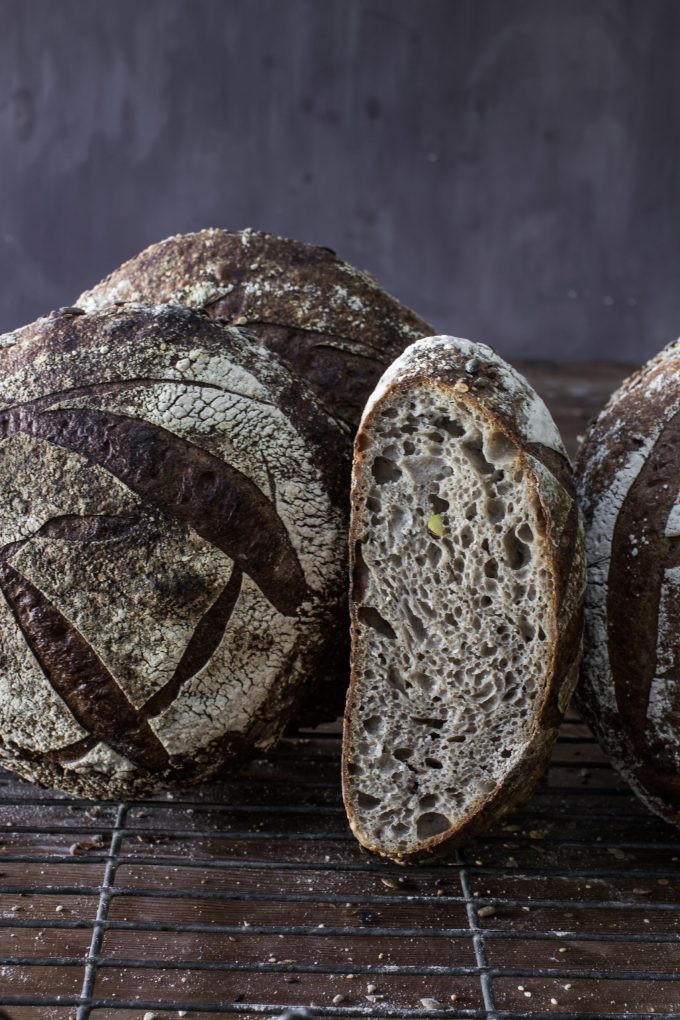
What is Bioavailability in Sourdough?
Bioavailability refers to the proportion of a nutrient that the body can absorb and use. In sourdough baking, it forms a vital link between nutrition and fermentation. Several factors affect how well the body can absorb nutrients, including the form the nutrient is in, how it interacts with other foods, how well the body produces digestive enzymes, and the health of the gut microbiome.
Why Does Bioavailability Matter?
Nutritional value depends not just on the presence of nutrients, but on how well the body can absorb and utilise them. In sourdough:
- Fermentation improves absorption – Organic acids like acetic acid, formed during fermentation, help release minerals that would otherwise remain bound to phytic acid.
- Gut health and enzymes – A balanced microbiome enhances digestion and improves nutrient uptake.
- Nutrient interactions – Specific combinations, such as vitamin D with calcium, can boost the bioavailability of those nutrients.
How Sourdough Increases Bioavailability
Sourdough fermentation actively enhances the bioavailability of:
- Polyphenols – These antioxidant-rich plant compounds become more accessible through fermentation.
- Minerals – Wholegrain flours provide magnesium, calcium, iron, and zinc, and fermentation makes them easier to absorb.
- Vitamins – Sourdough can increase the presence and activity of B vitamins.
The microbes in a sourdough starter also break down antinutrients like phytic acid, which might otherwise inhibit mineral absorption.
Factors Affecting Nutrient Absorption
At The Sourdough School and Club, we not only teach you how to bake truly healthy bread but we look at the way you eat and share bread as a holistically.
Small dietary choices can significantly improve how the body absorbs nutrients:
- Adding healthy fats – Including fats in meals boosts absorption of fat-soluble nutrients like vitamins A, D, E, and K.
- Vitamin pairings – Combining vitamin D with calcium, or vitamin C with iron, can enhance absorption.
- Supporting microbial diversity – Using a variety of wholegrain flours (such as rye, spelt, or einkorn) introduces diverse microbes and fibres. Including sourdough in a diet rich in fibre, fermented foods, and plant-based ingredients helps maintain a balanced gut microbiome, which plays a key role in absorption. You can shop some of our favourite flours in our shop here.
Sourdough’s long, natural fermentation process brings these elements together, supporting a more nourishing, nutrition-conscious approach to eating.
Bioavailability and Gut Health
Bioavailability connects closely with digestibility, fibre content, and microbial balance. At The Sourdough School, we integrate the BALM protocol to optimise fermentation for better health outcomes—supporting mental health, reducing inflammation, and improving nutrient access. You can explore these principles further through our courses at The Sourdough School.
 Desired Dough Temperature (DDT)
Desired Dough Temperature (DDT)


